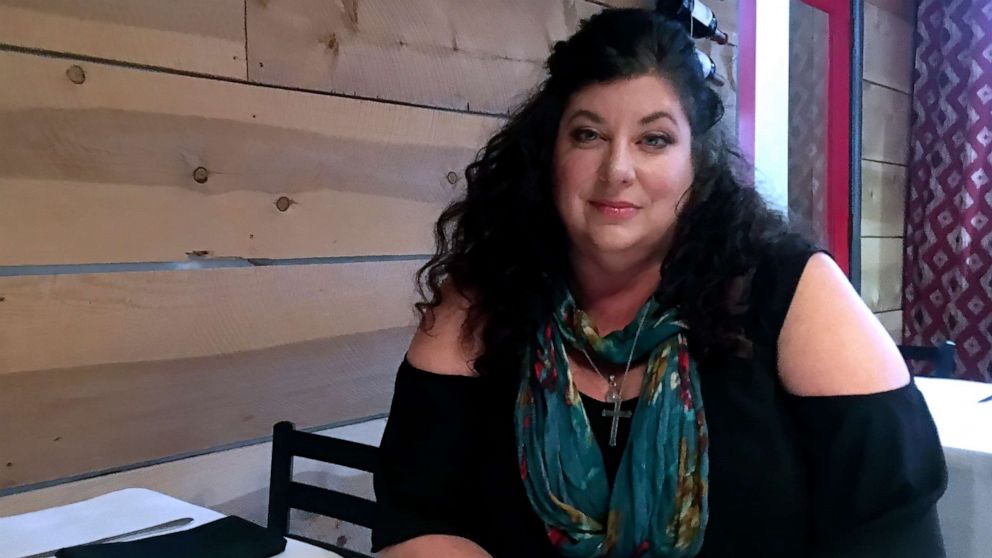Sexual harassment
Prosecutors in Monterey County, California, have opened a probe into whether Tara Reade, the woman accusing Democratic presidential candidate Joe Biden of sexual assault nearly two decades ago, lied under oath when testifying in recent trials focused on domestic violence, the district attorney’s office said.
“We are investigating whether [she] gave false testimony under oath,” Monterey County chief assistant district attorney Berkley Brannon said in a statement to ABC News.
The new probe was first reported by Politico, marking the latest development after news accounts last week questioned previous statements she had made about her credentials while on the stand. It’s unclear exactly which portions of her in-court appearances prosecutors are currently reviewing, but trial transcripts obtained by ABC News suggest she may have misstated her credentials several times.
Each time, before a judge would allow her to testify about the insidious cycles of domestic violence, Reade had to show she had the proper education and experience required to be an “expert witness.”
She often described her 20-year career as “a victim advocate” with local agencies and organizations. But in at least two trials over the past two years, Reade stated she had earned a degree from Antioch University in Seattle.
That is not true, according to Antioch University officials – and it can be a criminal offense to knowingly make false statements under oath.
“[She] attended but did not graduate from Antioch University,” the school’s spokeswoman, Karen Hamilton, said in a statement to ABC News.
In fact, one source familiar with the matter said, Reade attended the equivalent of just one year of school at Antioch University in 2000 – a fraction of what’s usually required to earn a degree.
The next year, Reade was accepted into Seattle University School of Law through the school’s Alternative Admission Program, which provides “a pathway for individuals from historically disadvantaged and under-represented communities” to attend law school, an official from the school recently told CNN, which first reported on questions about her undergraduate schooling.
Reade received her law degree in 2004. While testifying as an expert witness, she often testified under the name Alexandra McCabe, which she assumed after fleeing from her allegedly abusive ex-husband in 1997.
When questions about her testimony surfaced last week, Reade provided the New York Times with a screenshot of a school transcript from Antioch University, which showed her department as “BA Completion” but left blank the “date conferred” and “degree conferred.” She told the Times that, to help protect her new identity from her allegedly abusive ex-husband, the school’s then-president, Tullise Murdock, helped secretly bestow a “fast-tracked” degree upon her.
But Hamilton, the Antioch University spokeswoman, told the Times that Murdock denied any such arrangement.
In several press releases announcing convictions dating back to at least 2009, prosecutors have repeatedly described Reade’s testimony as “critical” to their cases. Defense lawyers from many of those trials are now looking to reopen their clients’ cases, according to the Times.
On Friday, a prominent attorney who had been representing Reade for two weeks announced that he had decided to stop representing her.
‘Legislative assistant’ to Biden?
The details of Reade’s education may not have been her only overstatements while testifying in court – she repeatedly testified that she was a “legislative assistant” in Biden’s Senate office in the early 1990s.
Most recently, in an October 2019 trial seven months ago, she even suggested she was involved in moving one of Biden’s landmark pieces of legislation along.
“On the Violence Against Women Act, I was a legislative assistant and did research in that office,” she said, according to a transcript of her testimony.
In January 2019, she testified that she worked for Biden “as a legislative aide.”
But, in fact, government records show Reade was a “staff assistant” on Biden’s team – a significantly lower position than a “legislative aide.”
Reade seemed to acknowledge the difference in a podcast interview two months ago, when she said she “worked for legislative aides” on Biden’s staff.
“Pretty low on the totem pole,” she said of her position at the time. “I was working with the interns. So I supervised the intern program, and made sure all the mail was distributed where it was supposed to [be].”
When assisting legislative aides, she “would help go to a hearing and take notes, or write something,” she added.
It’s unclear exactly how many times Reade has appeared as an expert witness in court. In a December 2018 trial, she testified it had “been over 20 times.” In another trial a month later, she said it was “at least ten” times.
The Biden allegations
Reade is now accusing Biden of sexual assault during her time in his office, allegations that Biden and his closest advisers from the time have vehemently denied.
According to Reade, in 1993 Biden pinned her against a wall in a Capitol Hill hallway, slipped his hand into her skirt, and then digitally penetrated her.
The explosive allegation goes much further than when she first publicly lodged allegations against Biden last year. In an April 2019 interview with her local newspaper, she accused Biden of inappropriately touching her neck and shoulder when she worked for him.
The allegations last year went further themselves than previously-documented claims.
In recent interviews, Reade has said that while still working for Biden, she formally filed a sexual harassment complaint with a Senate office, but that has yet to be corroborated.
Biden has said the events described by Reade “never happened.”
“[Women] deserve to be treated with dignity and respect, and when they step forward they should be heard, not silenced,” he said in a recent statement.
Still, “the full and growing record of inconsistencies in her story” should be examined, he said.
Reade did not immediately respond to a request seeking comment for this article.
ABC News’ Mary Bruce, Matt Mosk and Aaron Katersky contributed to this report.
